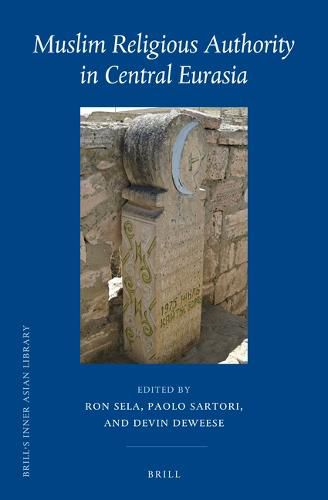Readings Newsletter
Become a Readings Member to make your shopping experience even easier.
Sign in or sign up for free!
You’re not far away from qualifying for FREE standard shipping within Australia
You’ve qualified for FREE standard shipping within Australia
The cart is loading…






Thirty years after the fall of Soviet power, we are beginning to understand that the experience of Muslims in the USSR continued patterns of adaptation and negotiation known from Muslim history in the lands that became the Soviet Union, and in other regions as well; we can also now understand that the long history of Muslims situating religious authority locally, in the various regions that came under Soviet rule, in fact continued through the Soviet era into post-Soviet times.
The present volume is intended to historicize the question of religious authority in Muslim Central Eurasia, through historical and anthropological case studies about the exercise, negotiation, or institutionalization of authority, from the nineteenth to the early twenty-first century; it thus seeks to frame Islamic religious history in the areas shaped by Russian and Soviet rule in terms of issues relevant to Muslims themselves, as Muslims, rather than solely in terms of questions of colonial rule.
Contributors are Sergei Abashin, Ulfat Abdurasulov, Bakhtiyar Babajanov, Devin DeWeese, Allen J. Frank, Benjamin Gatling, Agnes Kefeli, Paolo Sartori, Wendell Schwab, Pavel Shabley, Shamil Shikhaliev, and William A. Wood.
$9.00 standard shipping within Australia
FREE standard shipping within Australia for orders over $100.00
Express & International shipping calculated at checkout
Thirty years after the fall of Soviet power, we are beginning to understand that the experience of Muslims in the USSR continued patterns of adaptation and negotiation known from Muslim history in the lands that became the Soviet Union, and in other regions as well; we can also now understand that the long history of Muslims situating religious authority locally, in the various regions that came under Soviet rule, in fact continued through the Soviet era into post-Soviet times.
The present volume is intended to historicize the question of religious authority in Muslim Central Eurasia, through historical and anthropological case studies about the exercise, negotiation, or institutionalization of authority, from the nineteenth to the early twenty-first century; it thus seeks to frame Islamic religious history in the areas shaped by Russian and Soviet rule in terms of issues relevant to Muslims themselves, as Muslims, rather than solely in terms of questions of colonial rule.
Contributors are Sergei Abashin, Ulfat Abdurasulov, Bakhtiyar Babajanov, Devin DeWeese, Allen J. Frank, Benjamin Gatling, Agnes Kefeli, Paolo Sartori, Wendell Schwab, Pavel Shabley, Shamil Shikhaliev, and William A. Wood.